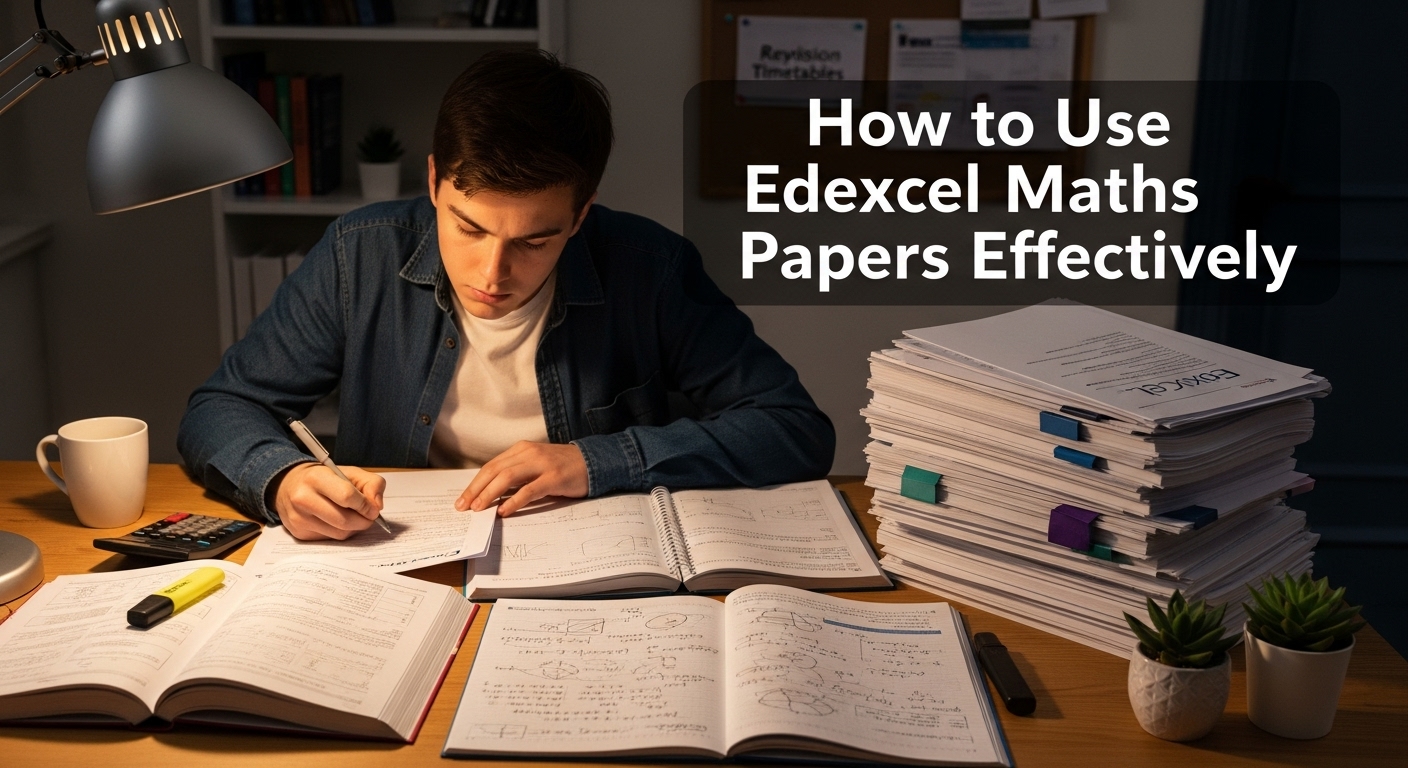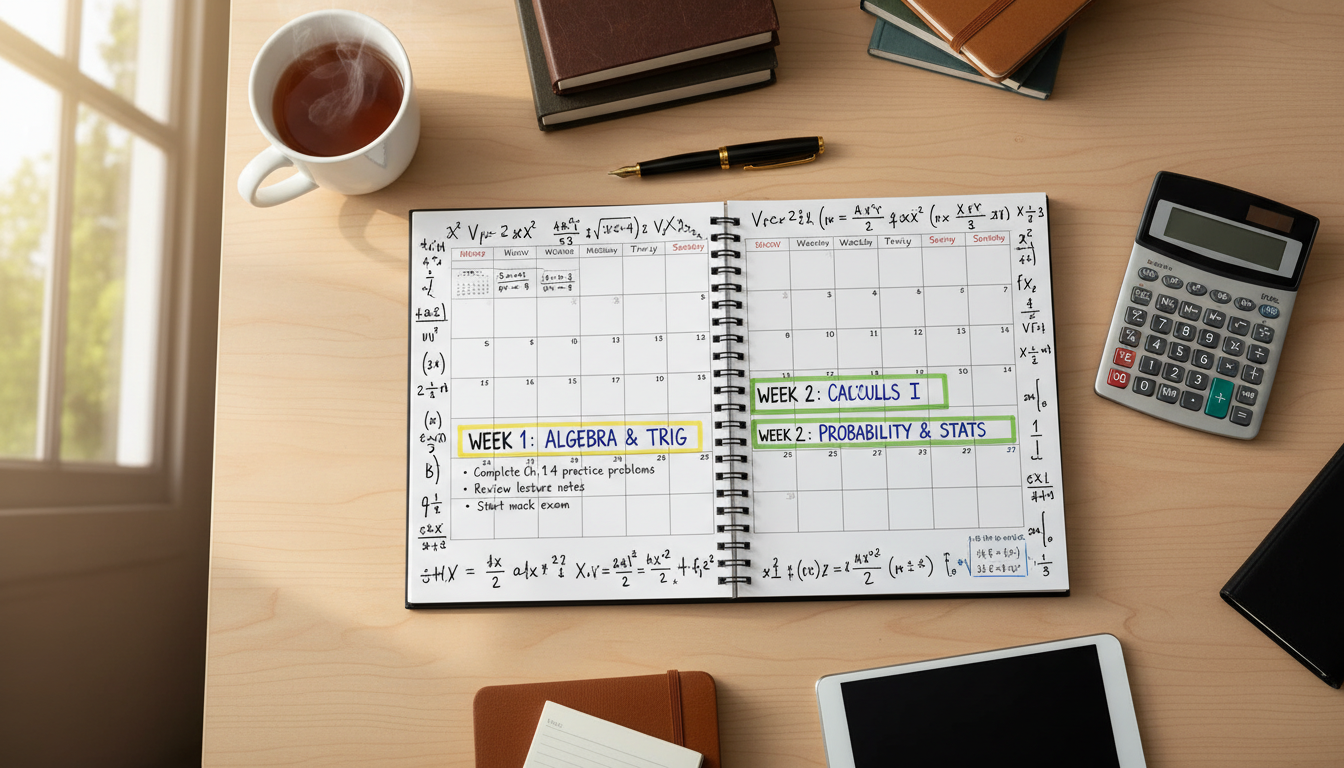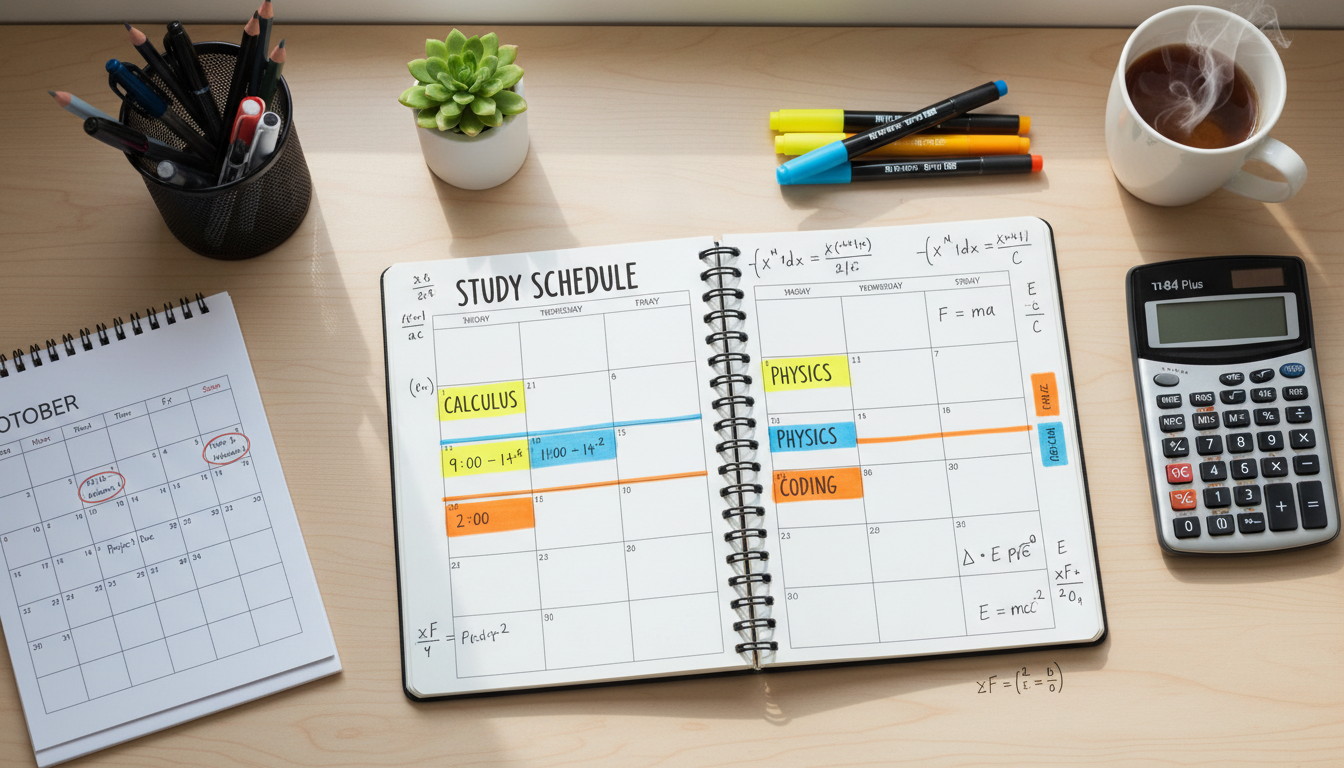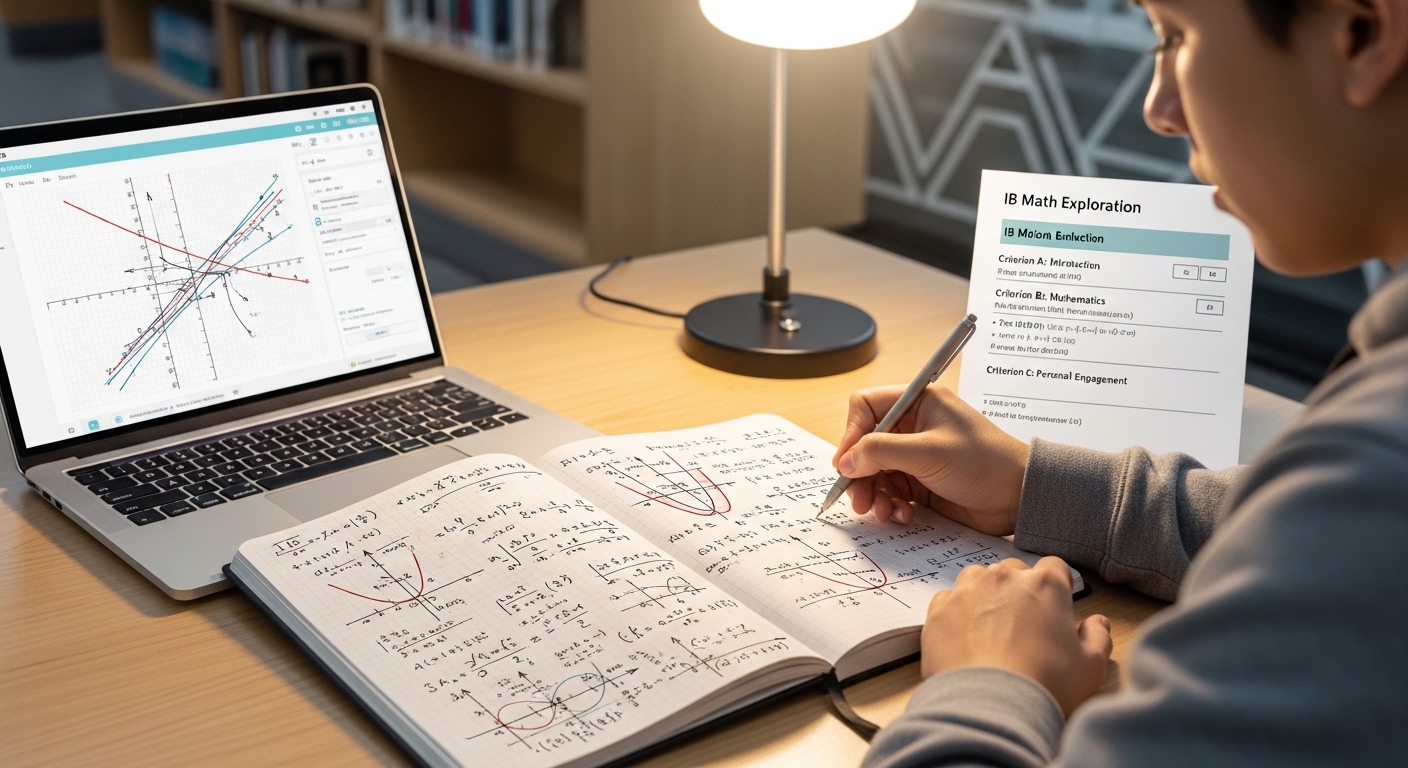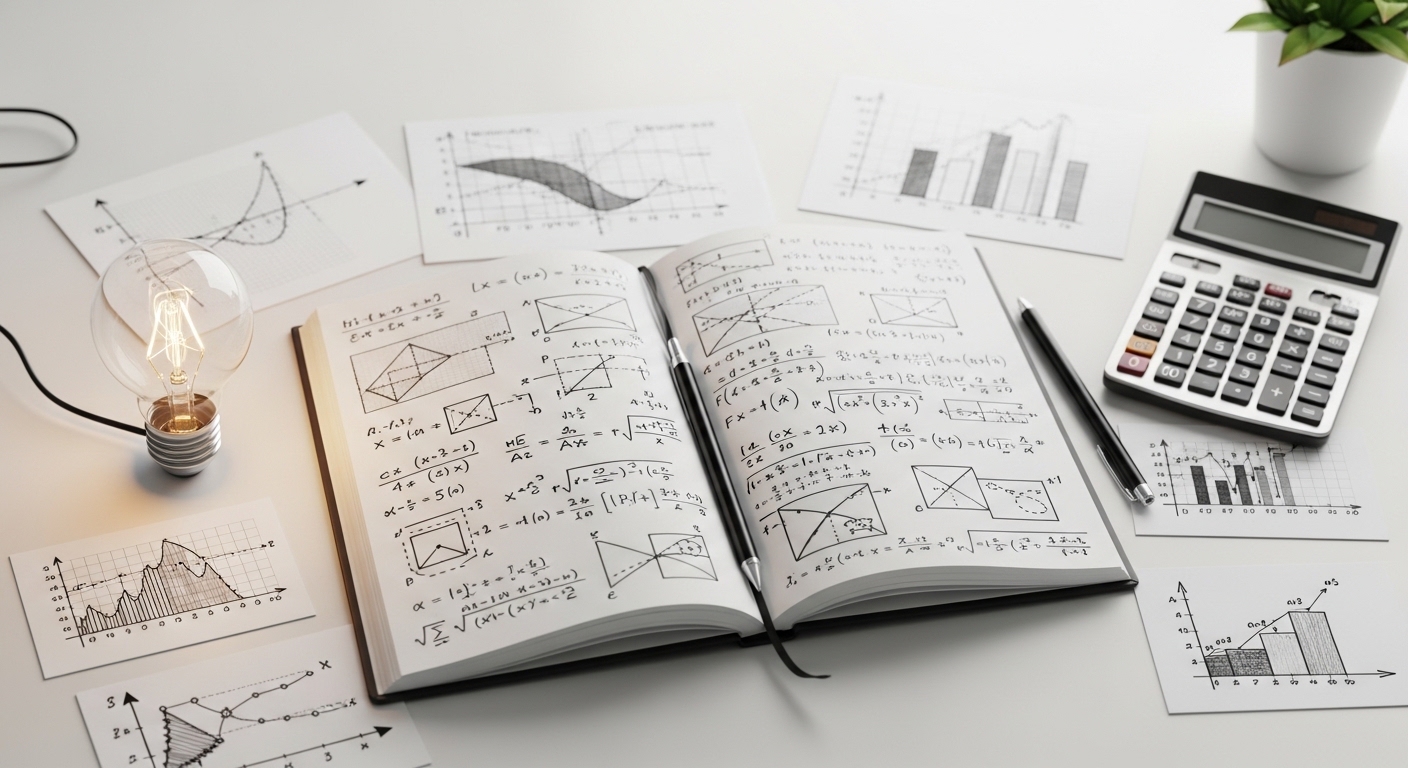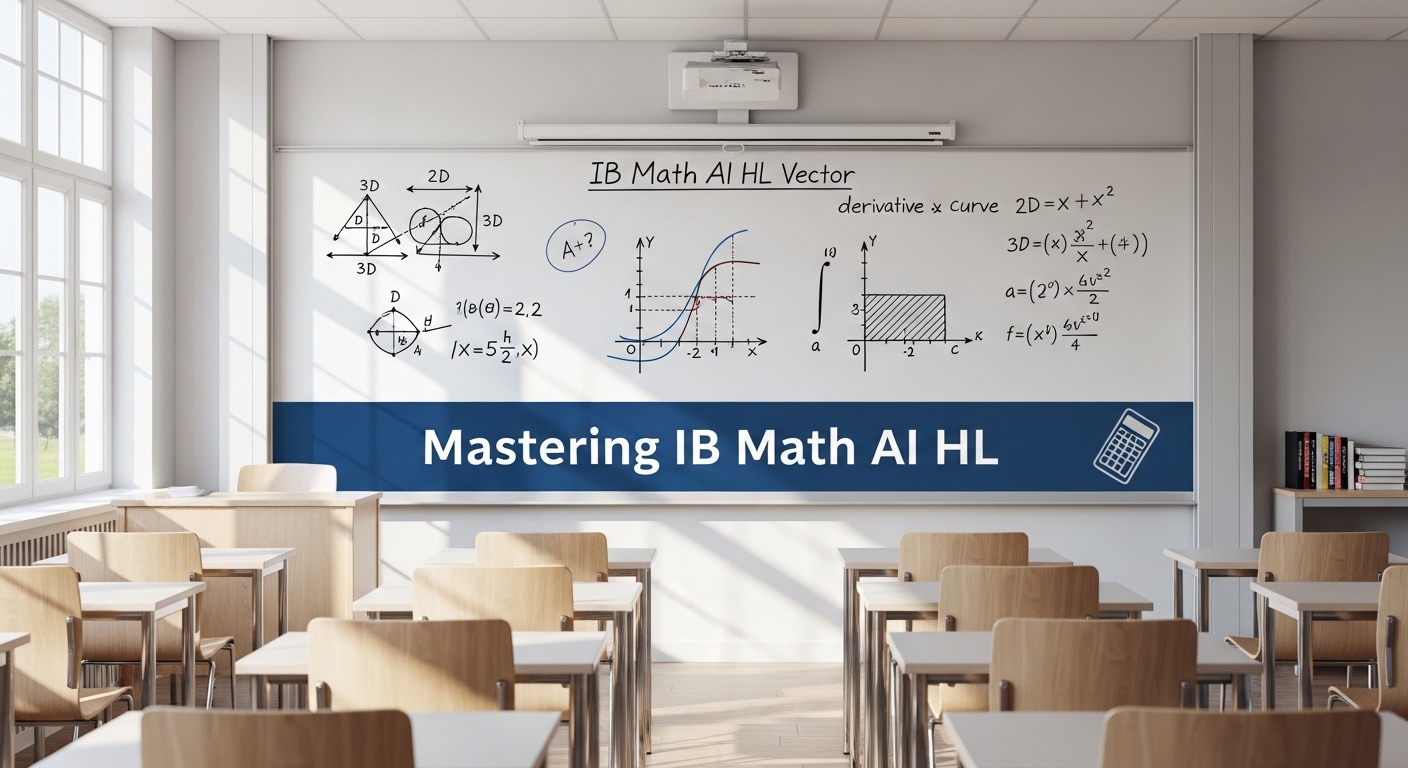Introduction
When it comes to GCSE Maths preparation, Edexcel Maths past papers are one of the most effective revision tools available. They not only help students understand question styles and exam patterns but also reveal areas that need improvement.
Whether you are aiming for a Grade 4 pass or pushing for a Grade 9 distinction, consistent practice with past papers builds confidence, accuracy, and speed — three essential ingredients for exam success.
In this guide, you will learn how to use Edexcel maths past papers strategically, interpret mark schemes like an examiner, and apply proven study methods to get the best possible results.
Table of Contents
Why Edexcel Maths Past Papers Are Essential
Practicing with Edexcel maths past papers is more than just solving old questions — it is about mastering exam technique. Here is why they are indispensable:
- Familiarity with Format: Every year, question structures and wording follow predictable patterns. Past papers train your brain to recognize them.
- Time Management: Timed practice improves pacing and prevents panic during real exams.
- Identifying Weaknesses: Reviewing your answers reveals recurring mistakes that you can focus on for effective revision.
- Building Confidence: The more papers you complete, the more comfortable you become under pressure.
Understanding the Edexcel Exam Structure
Before diving into past papers, it is crucial to know the structure of the Edexcel GCSE Maths exam.
TierPapersMarks per Paper Duration Calculator Use
Foundation Paper 1, 2, 3 80 marks 1 hour 30 mins Paper 1 (non-calc), 2 & 3 (calc)
Higher Paper 1, 2, 3 80 marks 1 hour 30 mins Paper 1 (non-calc), 2 & 3 (calc)
Each paper contributes 33.3% toward the final GCSE grade. Knowing this breakdown helps you balance your revision across both calculator and non-calculator papers.
Step-by-Step Strategy for Using Edexcel Maths Past Papers
1. Start Early and Schedule Consistently
Begin using past papers at least three months before your exam. Schedule one full paper per week, then gradually increase to two as the exam approaches.
Pro tip: Use a revision planner to track which topics appear most frequently and when you last practiced them.
2. Begin with Open-Book Practice
Your first few attempts should be open-book. Keep your notes, formulas, and guides within easy reach. This builds understanding without pressure. Once you are confident, switch to timed, closed-book sessions.
3. Use Mark Schemes to Learn Examiner Expectations
After completing a paper, always check your work against the official mark scheme to ensure accuracy. This step is crucial — it shows exactly how marks are awarded.
Mark schemes reveal:
- Keywords examiners look for in explanations
- How are partial marks given for working
- The importance of showing all steps, even for simple questions
4. Focus on Recurring Topics
Some maths topics appear year after year — algebra, ratio, probability, geometry, and statistics.
Track these patterns as you review multiple papers. Create a “high-frequency topics” list to revise more strategically.
GCSE Maths Revision Books 2026
5. Simulate Real Exam Conditions
When you are confident, recreate real exam settings:
- Sit in a quiet space
- Set a timer for 1 hour and 30 minutes
- No phone or notes
- Mark your work honestly afterwards
Simulating pressure conditions can reduce exam-day anxiety and improve your resilience.
6. Review, Reflect, and Repeat
After marking your paper, analyze your performance:
- Which questions cost the most marks?
- Were errors due to misunderstanding or carelessness?
- Did time pressure affect your accuracy?
Document these insights in a revision journal to guide your next study session.
Common Mistakes When Using Edexcel Maths Past Papers
Even diligent students can misuse past papers. Avoid these pitfalls:
- Skipping mark schemes – You will miss key examiner insights.
- Repeating the same paper too soon – It inflates your confidence without real progress.
- Neglecting topics you find hard – Growth happens when you challenge weak areas.
- Not timing yourself – Time pressure is part of the skill.
Digital Tools to Enhance Your Practice
Modern learning platforms make using Edexcel maths past papers even easier:
- Maths Genie: Categorized questions by topic with model answers.
- Save My Exams: Interactive marking and revision notes.
- ExamSolutions: Step-by-step video tutorials for each past paper.
These sites provide free resources aligned directly with Edexcel’s current specifications — ideal for targeted revision.
How Teachers and Parents Can Help
Teachers
- Provide structured feedback from past paper practice.
- Focus lessons on recurring question types.
- Run mock exams using real Edexcel materials.
Parents
- Encourage consistent revision habits.
- Help create a calm, organized study environment.
- Celebrate effort and improvement, not just results.
Collaboration among teachers, parents, and students fosters a supportive learning environment that reduces exam stress.
Learning Formats: Self-Learning, Group Learning and One-to-One Sessions
Not every student learns the same way. Here’s how to integrate Edexcel maths past papers into different learning setups:
Self-Learning
Perfect for independent learners who want flexibility.
- Access a library of past papers and video solutions at your own pace.
- Ideal if you like controlling your own study times and reviewing difficult questions slowly.
- Cost-effective and allows unlimited revision cycles.
Tip: Mathzem’s free past paper library is ideal for self-directed learners.
Group Learning
Collaborative learning helps you stay motivated.
- Discuss tricky questions and compare methods with peers.
- Join small-group classes led by experienced tutors.
- Cheaper than private tutoring but structured enough for accountability.
Mathzem’s group sessions blend guided practice with interactive problem-solving, so you learn from others’ mistakes as well as your own.
One-to-One Sessions
For personalized results, one-to-one tutoring offers:
- Tailored lessons based on your strengths and weaknesses
- Targeted feedback on past paper performance
- Rapid improvement through focused attention
Mathzem’s one-on-one tutoring focuses specifically on Edexcel exam techniques, helping you fine-tune your performance in weeks, not months.
Frequently Asked Questions About Edexcel Maths
How many Edexcel maths past papers should I complete before GCSEs?
Aim for at least 10–12 full papers — this covers all question types and ensures confidence with time management.
Can I use Edexcel maths past papers for other exam boards?
They are best suited for Edexcel students, but also useful for general GCSE maths revision, as many topics overlap.
Are answers available for past papers?
Yes, official mark schemes and examiner reports are available free from the Pearson website.
Do questions repeat in future exams?
Not exactly, but concepts and formats often do, making past papers invaluable for spotting trends.
What if I struggle with time management?
Practice with shorter timed sections (e.g., 30-minute sets) before attempting full papers to build speed gradually.
Conclusion
Using Edexcel maths past papers effectively is one of the most powerful ways to prepare for GCSE exams. It sharpens your problem-solving skills, strengthens your exam technique, and builds the confidence needed to perform at your best.
The key is consistency: start early, review thoroughly, and always learn from your mistakes. Each paper you complete brings you one step closer to the grade you are aiming for.
When you finally walk into your GCSE exam hall, you will not be facing unknown challenges — just familiar patterns you have mastered through smart practice.
